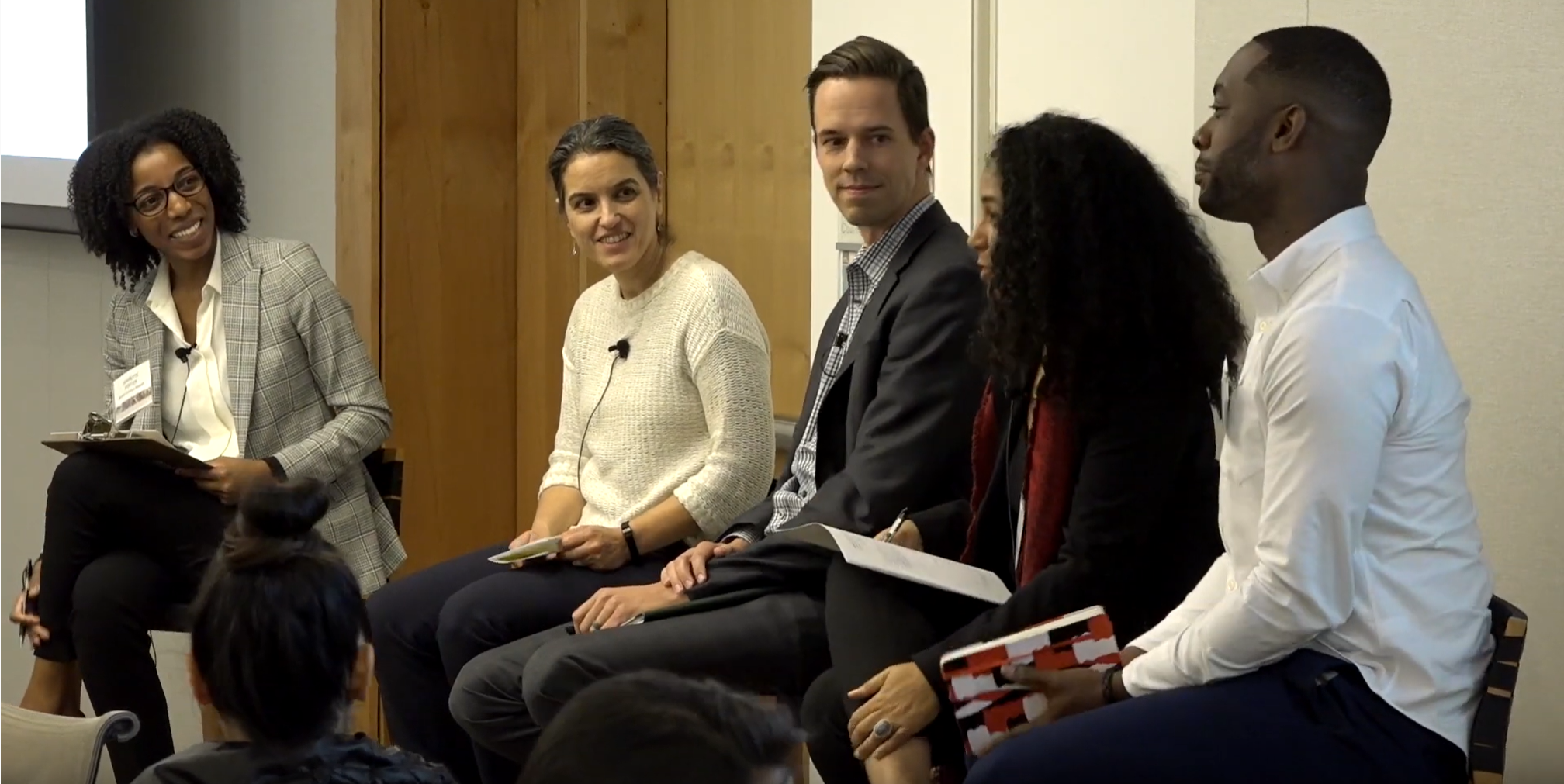Exploring Student Experience in Mathematics Learning
Chloe Stroman
Mathematics, especially when compared to subjects in the arts and humanities, is often mischaracterized as a static set of facts and rules, insusceptible to bias, and disconnected from other disciplines and issues in the world.
But in mathematics contexts, students have the same psychological needs that they have in other academic settings to belong, feel a sense of relevance and purpose, and believe that their abilities can grow. And, as in all subjects, students’ experience in mathematics is shaped by their identity and the norms and narratives that comprise their home and classroom culture.
At a recent panel, MSN Director of Research and Senior Fellow Shanette Porter moderated a discussion about how designing mathematics contexts with a focus on culture, curiosity, vulnerability, and structures for failure and redemption can lead to better mathematics learning and achievement.
Nathan Alexander and Na’ilah Suad Nasir are mentors in our Inclusive Mathematics Environments Early Career Fellowship, along with several members of the MSN. In the past year, many researchers in our community and their colleagues have furthered our understanding of how learning mindsets, classroom practices, relationships between educators and students, and inequitable access to mathematics courses influence students’ experiences and outcomes.
- Jo Boaler shared an excerpt of her new book Mathematical Mindsets that outlines research on, and strategies for, teaching mathematics in a conceptual rather than procedural way in order to combat mathematics anxiety and build students’ ability to think flexibly about mathematics.
- In a sample of German fourth graders, Andrei Cimpian found that teachers’ belief that success in mathematics requires innate ability may be an obstacle to fostering engagement and learning among students receiving lower grades.
- Chris Hulleman and Inclusive Mathematics Environments Early Career Fellow Stacy Priniski developed and tested three utility value interventions in online high school mathematics courses, illustrating the costs and benefits of different implementation choices (paywall). Stephanie Wormington and Chris Hulleman found that community college students in online developmental mathematics courses received lower grades than face-to-face students, with online adult learners receiving particularly low grades. In a third study co-authored by Chris Hulleman, a utility value intervention administered in an intermediate mathematics course at a two-year college had a positive effect on men’s passing rates (paywall).
- Yasmiyn Irizarry examined teachers’ ratings of academic ability across different racialized groups, finding that black first-graders received lower ratings in language and literacy and Asian first-graders received higher ratings in mathematics (paywall).
- Michal Kurlaender co-authored a report on mathematics course-taking among high school seniors in California, finding patterns of inequitable access to advanced mathematics pathways based on students’ race/ethnicity and school characteristics, which may in turn have limited students’ postsecondary opportunity.
- Jamaal Matthews wrote about inclusive pedagogies that can be used to create mathematics classrooms that support black girls’ learning and well-being. In another study, he examined teachers’ formative experiences as mathematics students and how those experiences relate to the teachers’ classroom care practices and student outcomes. Both papers are available on the THREADS website.
- Barbara Schneider and National Study of Learning Mindsets Early Career Fellow Soobin Kim found positive effects of a statewide college-preparatory policy, called the Michigan Merit Curriculum, on high school mathematics course-taking and college enrollment (paywall).
- A study by Tanner LeBaron Wallace revealed that adolescents’ perceptions of how well their mathematics teacher knew them were related to their self-reported value of mathematics and classroom experience, particularly for students of color (paywall).
- Among female college students in virtual classrooms, Gregory Walton found that students who experienced sexist behavior from their instructor performed worse, regardless of the gender of the student’s avatar representing them in the classroom.
Several recently published snapshots from our National Study of Learning Mindsets Early Career Fellowship and our Mindsets and the Learning Environment research portfolio also investigate topics in mathematics:
- The formation of learning profiles in context: Mathematics anxiety, achievement, and interest in adolescents by Michael Broda
- Estimating the impact of growth mindset on high school mathematics performance and course-taking by Soobin Kim
- Can a growth mindset program overcome persistent messages about the stability of intelligence? by Alison Koenka
- Adolescents’ fixed mindset and stereotype concerns in mathematics: Their relations to anxiety, challenge avoidance, and achievement by Eunjin Seo
- Relations among students’ motivation, mathematics anxiety, and mathematics achievement by Nicole Sorhagen
- The relationship among growth mindset classroom climate, trust and respect, and student performance in mathematics by Chloe Stroman
We are excited to continue learning, as a network, about what it takes to create mathematics environments that support positive learning experiences for all students.
This work is licensed under a Creative Commons Attribution-NonCommercial-NoDerivatives 4.0 International License.
